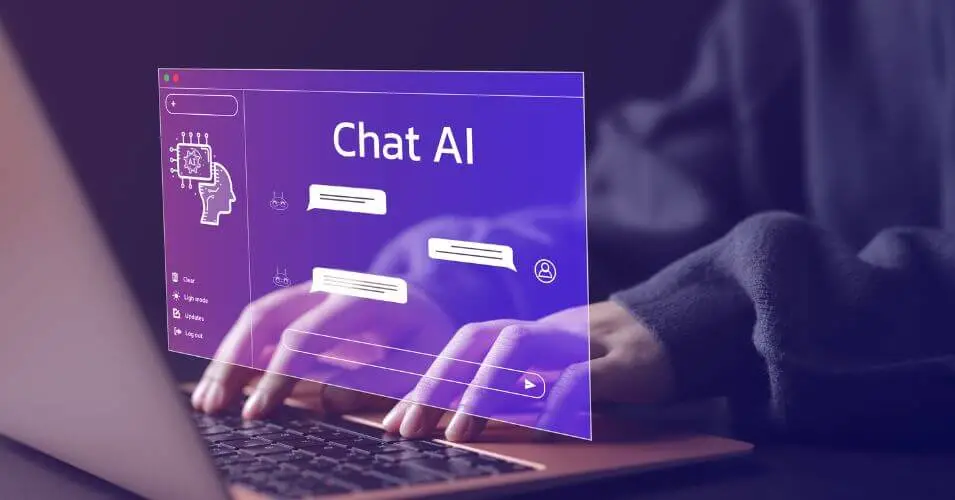Will AI Replace SEO - Looking at AI and the Future of Search
Artificial intelligence (AI) is creeping into every corner of our digital lives, and search is no exception. Google, Bing, and other search engines are now powered by sophisticated AI algorithms that understand our queries better than ever before.
But could this mean the end of traditional organic search results as we know them?
How AI is Changing Search
- Understanding intent: AI-powered search engines go far beyond simple keyword matching. They can analyze the context behind our searches, understanding the underlying intent to deliver more relevant results.
- Personalization: Search results are becoming increasingly tailored to individual users. AI learns from your past searches, location, and browsing behavior to prioritize results it thinks you'll find most useful.
- Summarizing Information: AI can now extract relevant information from websites and present it directly in search results. This means a user may get their answer without even needing to click on a link.
- Combating Misinformation: AI can assist in identifying and potentially downranking unreliable sources, helping promote accurate information.
The Potential Demise of Organic Listings
As AI gets better at understanding and fulfilling our search needs, here's just a few of the ways traditional organic results could take a backseat.
- Direct answers: AI's ability to summarize information could lead to search engines providing answers directly on the results page – no more need to visit separate websites. This would be similar in some ways to rich snippets we see now, except there would likely not be a link to a single blog or resource.
- Prioritizing the 'best' answer: Instead of ten blue links, AI may simply serve up the single result it deems most suitable. This could make it harder for smaller websites to compete with authority sites.
- Hyper-personalization: Search results may become so personalized that they look entirely different from user to user, blurring the line between 'organic' and whatever the algorithm decides is best for you.
Will AI Replace SEO?
The short answer in my opinion is no, AI will not replace SEO or search engine results pages. However, let's explore and think about a few logical reasons why that is the case.
Search Intent Varies
Searches aren't always about factual answers. Anybody who has worked in SEO will tell you that users are often seeking unique information like product comparisons, opinions, and testimonials. These are things AI will have trouble replicating since there is a subjective nature to them.
Additionally, some searchers enjoy the exploration element and looking at a variety of sources to form their own opinion. While AI is highly capable at generating summaries it won't always capture the nuanced information that can be found by looking at multiple websites. In other words, the streamlined nature of AI would actually be a negative for certain users.
AI Relies on Content
AI relies on quality content across the web to train their models and return the best answers for a given query. Over time, if there were no new content produced, then the answers these AI models produce would become outdated, incorrect, or nonexistent - here's how:
- The world constantly changes: New events, businesses, discoveries, and shifting social norms occur all the time. AI models trained on a static dataset would fail to keep up with these changes.
- Language evolves: The way we use language, word meanings, and slang terms change over time. An AI model without updated information would struggle to understand and respond accurately to modern language patterns.
- Relevance depends on context: Information that was perfectly relevant a few years ago could become obsolete due to technological advancements or changing trends. Without new input, AI models lose the ability to determine the current relevance of their responses.
If AI replaces SEO completely then companies and websites have no real incentive to continue producing content. In other words, search companies (Google, Microsoft, etc.) have a big incentive to keep SEO alive.
Regulation & Transparency
As AI becomes more sophisticated, the need for regulation and an ability to explain where answers came from will be necessary. Additionally, many users will want to know the sources an AI-generated answer is based on. Both of these will require a need for citations which is essentially just another form of ranking.
While the click through rate to the actual source or website may not be the same as what we see know, this sort of exposure will still incentive producing quality content and optimizing your site to be an authority on any number of subjects.
The Future: AI and Search Coexist
At its core, search engine optimization (SEO) is about producing high quality and valuable content for web users - plus organizing it in a way that search engines (robots/crawlers) can easily understand. AI is not replacing this practice.
However, AI will undoubtedly transform the tactics and strategies we use today. More likely, we see a future where the two coexist with listings further enhanced by AI or a completely new listing type all together presented with the current system of organic listings.




